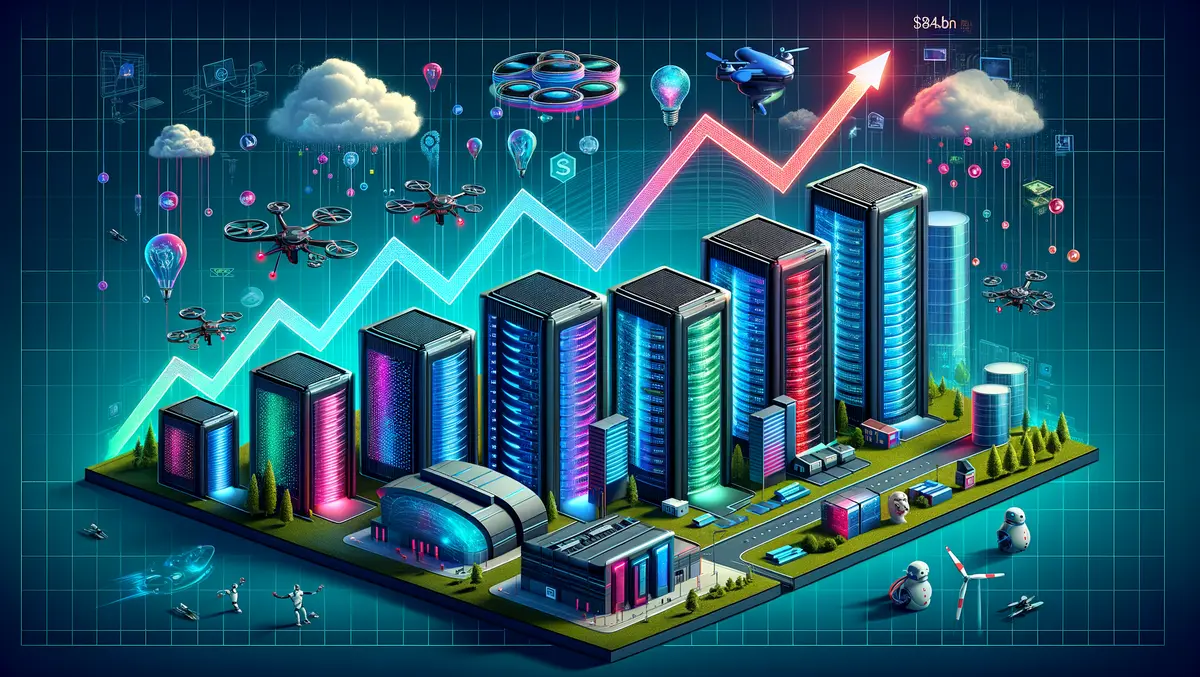
Data centre accelerator market to reach USD $89.8bn by 2031
According to a report by Transparency Market Research, the data centre accelerator market is forecast to grow significantly from 2024 to 2031, with a promising compound annual growth rate (CAGR) of 22.5%. In 2022, the market was valued at USD $14.4 billion, and it is anticipated that by 2031, it will reach an impressive USD $89.8 billion.
This market expansion stems largely from the increasing need for high-performance computing (HPC). Whether for high-end scientific simulations or intricate neural networks for machine learning, fast processing power, abundant memory resources, and massive storage capacities are paramount. The extensive infrastructure of data centres typically fulfils these requirements. The report states, "Efficient high-speed networking is another integral aspect of HPC, facilitating rapid data transmission among different nodes within an HPC system."
The rise of artificial intelligence (AI) and nascent technologies like autonomous vehicles creates a surge in demand for potent processors, accelerators, and high-speed networking technology. This is likely to fuel growth in the industry. Data centre accelerators such as Graphics Processing Units (GPUs) and Field Programmable Gate Arrays (FPGAs) significantly enhance AI services by speeding up data processing, thus providing businesses with insights more swiftly.
An exciting trend within the industry is the domination of GPUs in the market. GPUs' capability to manage large data demands and complex calculations makes them of choice for modern data centres. Unlike Central Processing Units (CPUs), which handle only a few threads quickly, GPUs are tailored to handle multiple processes simultaneously. This aspect is particularly useful for AI and Machine Learning (ML) tasks, which often involve evaluating colossal data sets.
Regional trends also show considerable growth in the market. The report asserts, "From 2023 to 2031, Asia Pacific is anticipated to have the greatest share. The market dynamics of the area are being fuelled by the rise in digital content consumption and the increase in data usage in China, Japan, India, and South Korea." North America also shows strong market trends due to the presence of significant digital players and the swift adoption of emerging technologies.
Major manufacturers are stepping up efforts to offer powerful and affordable accelerators to increase their market share. They also aim to distinguish themselves by offering specialised ML services, AI applications, and tools while working on creating data centre accelerators that consume less energy.
Noteworthy developments in the sector include NVIDIA's launch of its Data Center Platform Play, offering state-of-the-art technology to meet diverse computing needs. Meta's new chip, the Meta Training and Inference Accelerator (MTIA), aims to enhance the effectiveness of AI activities. Intel revealed its four-year strategy for data centres, focusing on Infrastructure Processing Unit (IPU) generations, each with an ASIC integrated with an FPGA.
The projected growth of the data centre accelerator market represents a pivotal moment in the evolution of high-performance computing. As emerging technologies continue to shape industries worldwide, the demand for potent processors and high-speed networking solutions will only intensify. With industry leaders pushing the boundaries of innovation and regional markets driving dynamic shifts, the future of data centre acceleration holds tremendous promise for meeting businesses' increasingly complex computing needs globally.


